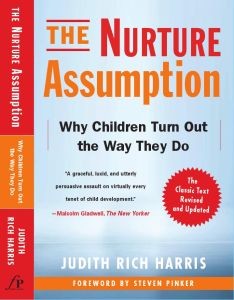Join getAbstract to access the summary!

Join getAbstract to access the summary!
Judith Rich Harris
The Nurture Assumption
Why Children Turn Out the Way They Do
Free Press, 2009
What's inside?
Peer groups and genetics affect your child's future more than you do, so forget blame and put the kids with the right friends.
Recommendation
This book is a refreshing break from the usual coverage of psychology, group behavior, parenting and the like. Judith Rich Harris exposes the flaws, presumptions and misguided assumptions in much "scientific" research about the psychological and behavioral impact parents have upon their children. Learning how poorly constructed some of the most influential studies and experiments have been is quite remarkable. getAbstract finds that the author does a masterful job of debunking what she calls "the nurture assumption" - that parents are powerful in shaping their children - and replacing it with a developmental theory that exalts the peer group. The author avoids jargon, and writes with a clear, witty, engaging style that should make her ideas accessible - although perhaps not necessarily agreeable - to most readers.
Summary
About the Author
Judith Rich Harris also wrote No Two Alike: Human Nature and Human Individuality, and co-wrote The Child: Development from Birth Through Adolescence and Infant and Child: Development from Birth Through Middle Childhood.
















Comment on this summary